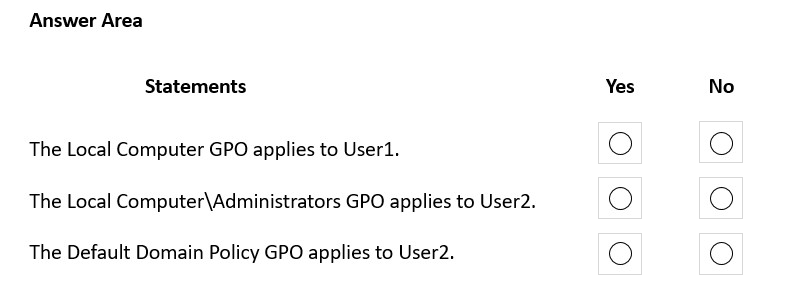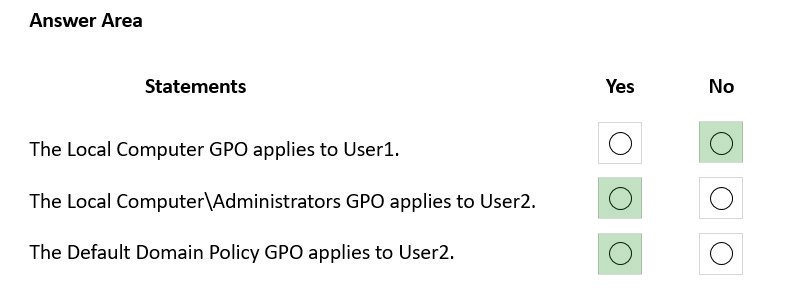

HOTSPOT -
Your network contains an Active Directory domain named contoso.com. The domain contains a computer named Computer1 that runs Windows 10.
Several user settings are configured in a Default Domain Policy Group Policy Object (GPO).
Users sign in to Computer1 as shown in the following table.
You configure the following GPOs on Computer1:
✑ Local Computer
✑ Local Computer\User2
✑ Local Computer\Administrators
Local Computer\Non-Administrators
Each GPO has different user settings configured.
For each of the following statements, select Yes if the statement is true. Otherwise, select No.
NOTE: Each correct selection is worth one point.
Hot Area:

Franzdepa
2 years, 1 month agoChrisC21
2 years, 1 month agoDestinysPower
2 years, 1 month agotfoi0001
2 years agoColin888
1 year, 10 months agoHarv717
2 years, 3 months agokchris
2 years, 6 months agoflabezerra
2 years, 6 months agoflabezerra
2 years, 6 months ago